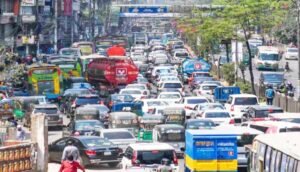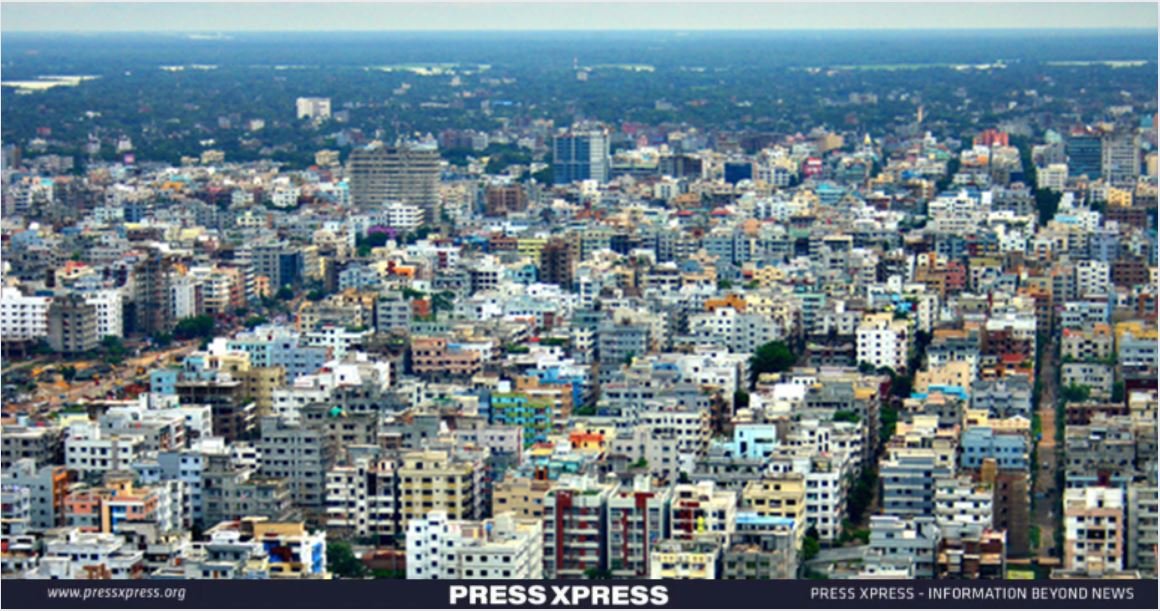Transitioning to the broader discourse, the challenges of rapid urbanization and population surge resonate with Dhaka’s further modernization. Ranked as the third least livable city globally, Bangladesh’s capital city Dhaka grapples with a plethora of socio-economic, technological, and environmental predicaments.
This city’s hurdles encompass various spheres like utility management, healthcare, transportation, waste disposal, digitized education, and governance. According to experts, addressing these challenges necessitates robust governance and innovative technological interventions to propel Dhaka towards smart city status.
You can also read: Global Temperatures Break Records, Earth Heat Warns
Experts are emphatic: the government must swiftly initiate decentralization efforts in Dhaka to ensure sustainable development, improve livability, and bolster public safety.
The clamor for sustained decentralization resonates across multiple sectors – administrative, political, economic, health, cultural, environmental, educational, infrastructural, and market. Analysts pinpoint a lack of political will and foresight as the primary hindrance to decentralization in the country.
Dhaka’s Livability Woes Persist
The urgency of this issue is underscored by recent findings from the Global Liveability Index 2023, which places Dhaka at a dismal 166th out of 173 livable cities globally, a stagnant position since 2022.
While government initiatives aim to realize a Smart Bangladesh by 2041, they have yet to manifest tangible improvements in Dhaka’s livability. Experts argue that the crux of unlocking the benefits of these projects lies in decentralizing Dhaka.
Urban planner Professor Nazrul Islam emphasizes that safeguarding Dhaka hinges on a robust decentralization system. He urges the government to modernize divisional cities to reduce urban centrality effectively.
“To safeguard Dhaka, if every district and divisional city, including Chittagong, Rajshahi, Khulna, Barisal, Comilla, Rangpur, Dinajpur, Sylhet, Faridpur, and Jessore, can mirror the capital’s model, urban centrality will significantly diminish,” he adds.
Environmental advocate Prof Abu Nasser advocates for relocating government and private institution headquarters from Dhaka to divisional and district towns, alleviating the pressure on the capital.
Prof Golam Rahman, another expert, prioritizes administrative decentralization to reduce the necessity for citizens to flock to Dhaka. He underscores the importance of deploying architects and planners to villages and small towns, working in alignment with comprehensive plans for holistic development.
Expert insights underscore the pivotal role of involving planners in executing Prime Minister Sheikh Hasina’s “My Village My City” initiative, facilitating the dissemination of urban benefits to rural areas, as highlighted by Local Government, Rural Development, and Cooperatives Minister Tajul Islam. Such implementation, he posits, could potentially curb the influx of individuals migrating to the capital.
Minister Tajul Islam further emphasizes the importance of successful execution in reducing the capital’s pull factor. He also highlights the formulation of a Detailed Area Plan (DAP) for a sustainable Dhaka city, coupled with the government’s strategic vision delineated in the Delta Plan, charting the course for the next century.
Echoing this sentiment, Housing and Public Works Minister RAM Obaidul Muktadir Chowdhury envisions Dhaka as a habitable hub, emphasizing decentralization efforts. The initiation of constructing four satellite cities outside Dhaka – Keraniganj, Savar, Narayanganj, and Gazipur – equipped with comprehensive amenities, underlines the government’s commitment towards sustainable urban development through public-private partnerships.
From Gridlock to Green Lanes: Dhaka’s Smart Transportation Vision
The global surge in interest among urban residents to incorporate smart technology into city environments underscores the growing importance of technological integration. However, the complexity and costliness of implementing such upgrades demand meticulous planning. Information and communication technologies, particularly the Internet of Things (IoT), have emerged as indispensable tools, facilitating real-time data exchange while safeguarding privacy and security.
Yet, the burgeoning global population exacerbates challenges in governance, transportation, utility management, and environmental sustainability, especially in densely populated areas like Dhaka. IoT-enabled smart cities offer a promising avenue for addressing these challenges, contingent upon robust internet infrastructure.
In Dhaka, the array of transportation options encompasses motorcycles, rickshaws, public buses, Lagunas, private cars, CNG vehicles, minibusses, and taxis. However, the burgeoning number of personal vehicles poses a significant challenge for city authorities. Linear extrapolation forecasts a steep rise, estimating approximately 213,268 cars by 2025 and 272,107 by 2030. Despite a slight downturn during 2020–2021 due to the COVID-19 pandemic, the overall trend points towards escalating demand for private vehicles.
Traffic Congestion and Economic Impact:

- Dhaka’s traffic congestion diminishes the Gross Domestic Product (GDP) by 2.9 percent.
- Other cities in the country incur losses ranging from 6 to 10 percent of GDP due to traffic-related issues.
- Each commuter bears a hefty annual cost of USD 1010.76, significantly impacting living standards.
- Average speeds are projected to plummet from 6.4 km per hour (kph) to a mere 4.7 kph by 2035, given current vehicle growth rates.
Traffic congestion in Dhaka exacts a heavy toll, diminishing the Gross Domestic Product (GDP) by 2.9 percent, while other cities in the country incur losses ranging from 6 to 10 percent of GDP. Research reveals that each commuter bears a hefty annual cost of USD 1010.76, posing significant challenges to living standards and necessitating the development of smart city solutions.
Reports indicate a grim reality for Dhaka’s traffic conditions, with average speeds projected to plummet from 6.4 km per hour (kph) to a mere 4.7 kph by 2035, given current vehicle growth rates. However, a strategic transport plan offers hope, promising to elevate average traffic speeds by approximately 13.7 kph.
Analyzing travel times from Uttara, Dhaka, to various destinations within the city reveals stark disparities between current and potential smart city transportation speeds. The comparison depicted in Figure 10 vividly illustrates the transformative potential of strategic transportation planning.
Battle Against Environmental Malevolence
In the bustling metropolis of Dhaka, where every dawn brings forth a staggering 4200 tons of waste, a cacophony of municipal solid waste and healthcare industry refuse engulfs the city, choking its air and tarnishing its streets with environmental malevolence.
But the perils facing Dhaka extend far beyond its waste-laden streets; the specter of pollution looms large, cast by the relentless march of population growth, urbanization, and the ever-expanding footprint of the transportation sector. With each passing day, the very air becomes a battleground, where the denizens of this sprawling metropolis wage an unseen war against invisible foes. Health risks loom ominously on the horizon, a grim reminder of the toll exacted by a polluted environment.
In a megacity like Dhaka, where the rhythm of revenue pulses through every street and corner, the government’s fixation on maximizing income from such a potent source is unsurprising. This Dhaka-centric approach dominates our policy realm, tethering our nation’s fate to the whims of a single metropolis. Yet, amidst this fervor for centralized control, voices rise in clamoring for change, for decentralization.
Behold the arteries of progress—roads and highways weaving a tapestry of connectivity across our land. As these lifelines burgeon, linking towns and cities in a web of opportunity, the vision of decentralization takes shape.
The government, with a vision for enduring decentralization, meticulously crafted multiple legislatures, strategically aiming for the pinnacle of local empowerment. It recognized the imperative to cede decision-making authority to the grassroots, igniting a paradigm shift towards inclusive governance. Complementing this progressive ethos, Bangladesh’s constitution stands as a beacon, particularly through Article 59, delineating a robust legal framework that vests authority in local government bodies while relinquishing central control.


